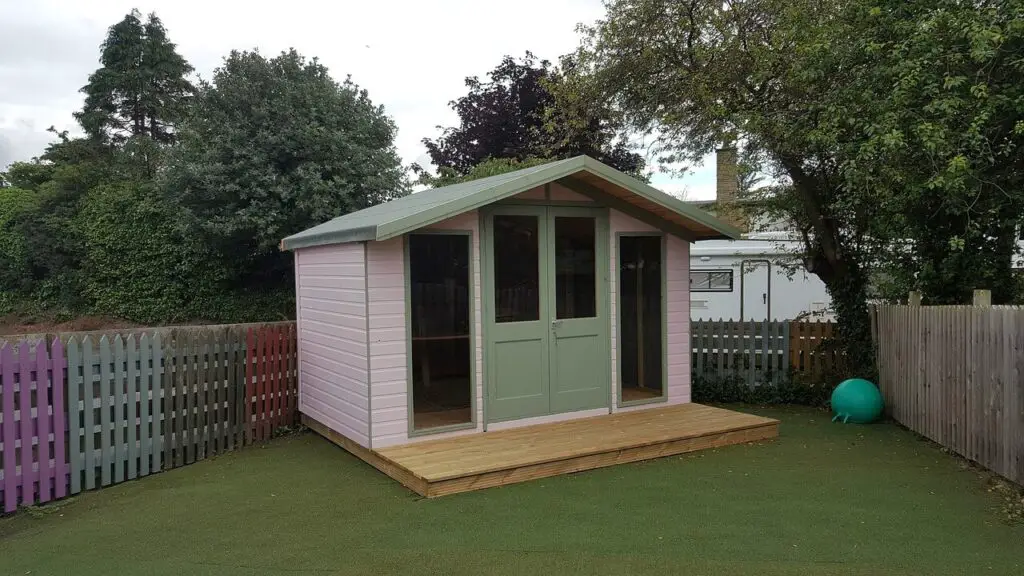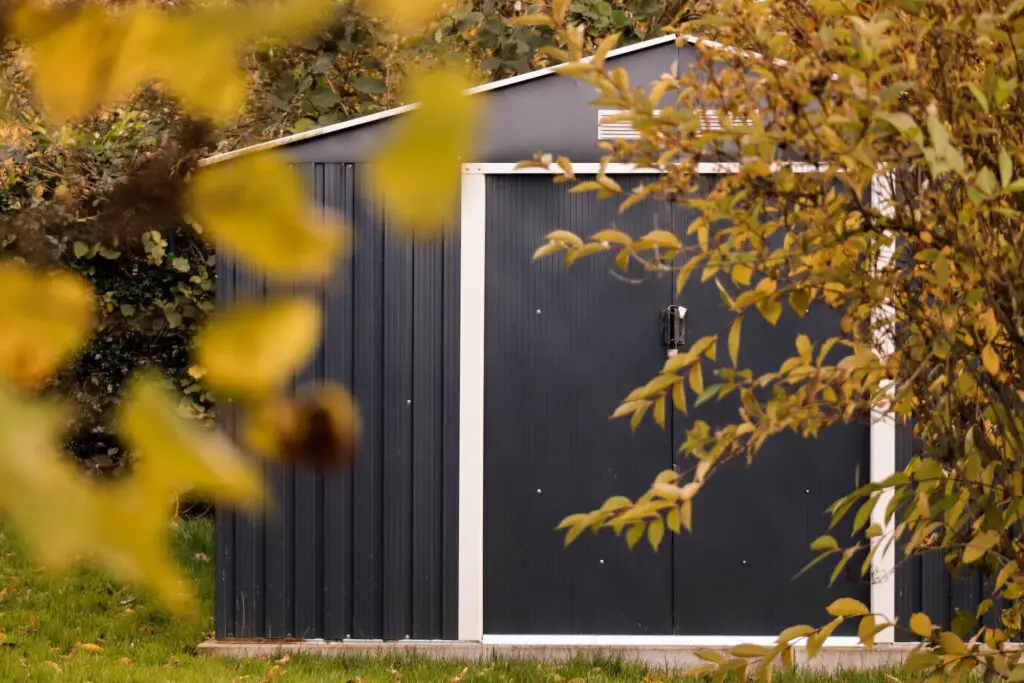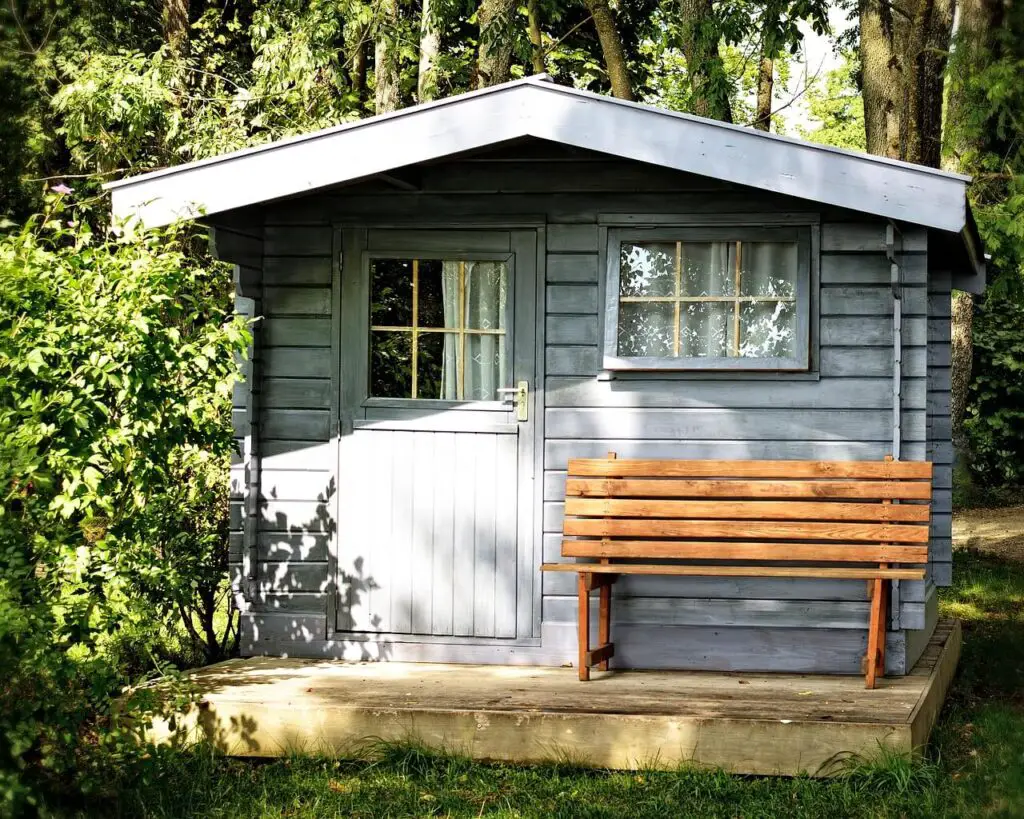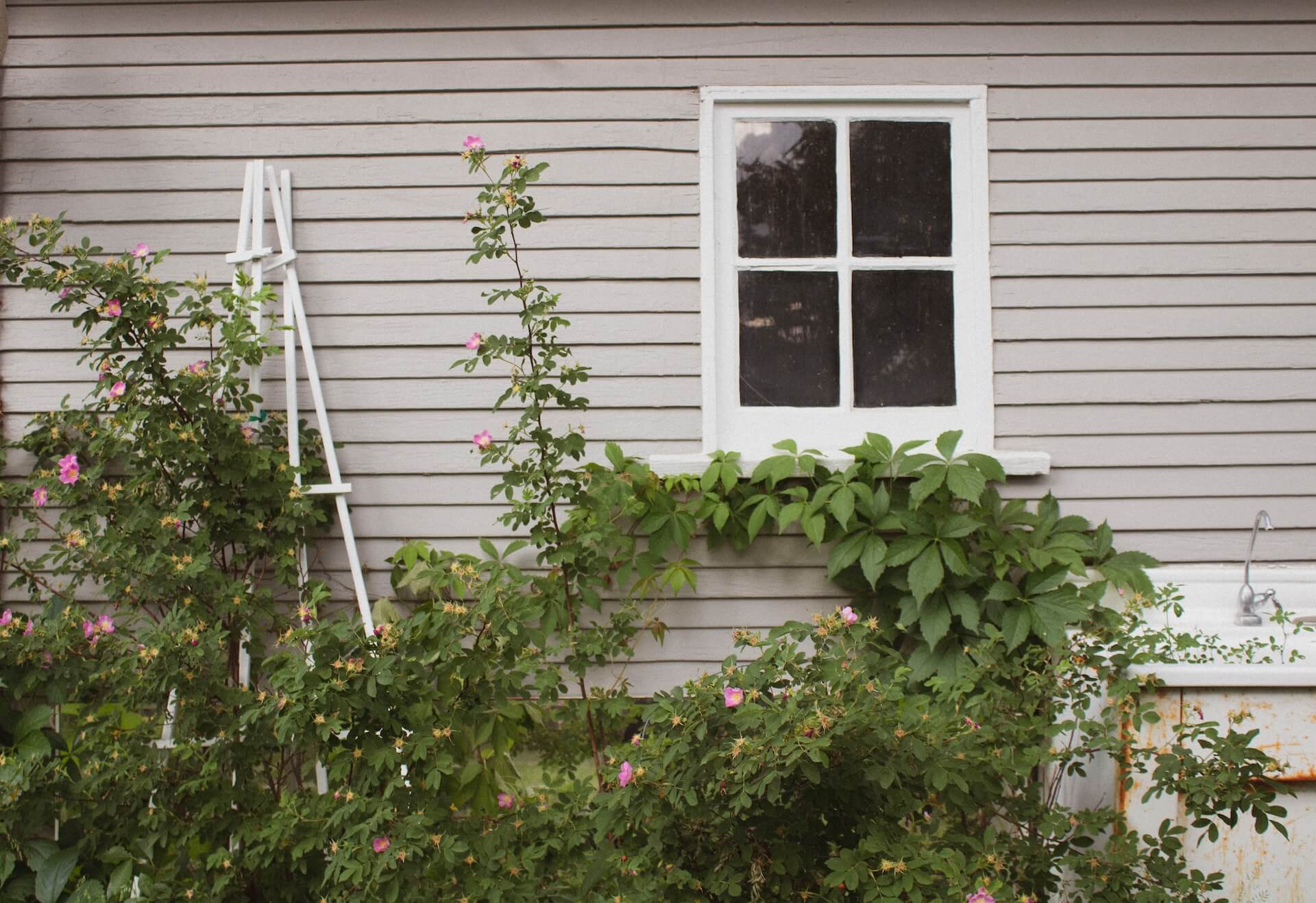Is my neighbour’s shed legal?
If you are dealing with a neighbour dispute about a garden shed or outbuilding you have come to the right place. As a solicitor with a passion for helping people resolve legal issues, I’m pleased to share my insights with you on this topic and I hope it helps.
In this guide, I will provide you with the information you need to understand the importance of garden sheds and outbuildings, as well as the common neighbour disputes that arise concerning them.
I will also discuss the legal considerations you should be aware of, as well as the steps you can take to resolve disputes amicably. So, whether you are looking to build a garden shed or outbuilding, or a neighbour who’s concerned about your neighbour’s structures, this guide is for you.
What is Classified as a Garden Shed or Outbuilding
Firstly, let’s define what we mean by garden sheds and outbuildings.
These are structures that are typically built in gardens or on private land and are used for various purposes, such as storage, workshops, or home offices.
They can come in many different sizes and styles and are often a valuable addition to a property, providing additional space for homeowners.
However, the benefits of garden sheds and outbuildings can sometimes be overshadowed by neighbour disputes that arise.
During Covid, a lot of people started working from home and there was a large increase in people building home offices and gyms in their gardens. This in turn increased neighbour disputes about sheds or outbuildings, especially if the structure didn’t not comply with building regulations.
These disputes can range from concerns about the height or location of the structures to noise and nuisance issues caused by their use.
As a result, it’s important to be aware of the potential legal implications and how to navigate them effectively.

Common Neighbour Disputes About Garden Sheds and Outbuildings
Most neighbour disputes that revolve around sheds and outbuildings typically fall under the following categories:
Height
One of the primary concerns that neighbours may have about garden sheds and outbuildings is their height and that they are too high. If a structure is too high, it may block views, sunlight, or affect the privacy of neighbouring properties. In some cases, this may even impact the value of neighbouring homes.
Location and distance from the property line
Another common issue is the location and distance of the structures from the property line. Neighbours may dispute the placement of the structures if they are too close to the property line, or put against the house which can create concerns about boundary issues and encroachment.
Access to sunlight and views
Neighbours may also dispute garden sheds and outbuildings if they block sunlight or obstruct views, particularly in areas with scenic views or desirable locations.
Noise and nuisance caused by garden sheds and outbuildings
Noise and nuisance can also be a major concern for neighbours. If a garden shed or outbuilding is being used as a workshop, music room or for other noisy activities, it can be disruptive to neighbouring properties and may lead to complaints about noise levels.
Compliance with building regulations
Finally, neighbours may dispute garden sheds and outbuildings if they are not compliant with building regulations or planning permission requirements. This can create legal issues and may require a resolution through mediation or legal action.
In my experience, addressing these concerns early on and seeking legal advice can help to prevent disputes from escalating into more serious issues.
If you’re facing a neighbour dispute related to garden sheds or outbuildings, I encourage you to seek professional legal advice to help you navigate the situation effectively.
You can find further information on the planning portal website.
Is My Neighbour’s Shed Legal? Legal Considerations for Garden Sheds & Outbuildings
‘Is my neighbour’s shed legal’ is a common question. When it comes to garden sheds and outbuildings, there are several legal considerations that homeowners should be aware of. These include:
Permitted development rights:
Under certain circumstances, homeowners may be able to build garden sheds and outbuildings without the need for planning permission, thanks to permitted development rights.
However, these rights are subject to specific limitations and conditions, and it’s essential to understand these before proceeding with any building work.
Not all properties have permitted development rights, for example if the property is listed, is in a conservation area or is greenbelt land. You can contact your local authority to determine if your property has permitted development rights.
Planning permission requirements:
If your intended garden shed or outbuilding does not qualify for permitted development rights, you will need to obtain planning permission from your local planning authority.
This can be a complex and time-consuming process, but it’s essential to ensure that your project complies with local planning regulations.
The Gov.uk website has further information on planning permission.
Building regulations:
Even if your garden shed or outbuilding is exempt from planning permission requirements, you may still need to comply with building regulations.
These regulations cover issues such as structural integrity, fire safety, and electrical installations, and they ensure that your structure is safe and fit for purpose.
Party wall agreements:
If your garden shed or outbuilding will be built on or near a party wall (a wall shared with a neighbouring property), you may need to obtain a party wall agreement. This is a legal agreement between you and your neighbour that sets out the terms of the construction work and any associated costs.
If you intend to sell your property in the future you will want to ensure that your shed or outbuilding complies with any legal conditions.
I always advise my clients to seek professional legal advice or advice from the local authority early on to avoid any potential legal issues down the line.
If you are unsure if your neighbours shed is legal, then there is no harm in asking for advice from the planning department.

Steps to Resolve Neighbour Disputes About Garden Sheds and Outbuildings
If you find yourself embroiled in a neighbour dispute related to garden sheds or outbuildings, there are several steps that you can take to help resolve the issue.
You can consider the following steps to help resolve your neighbour dispute about a shed or outbuilding:
- Communication and negotiation
Often, the best way to resolve a dispute is through direct communication and negotiation with your neighbour. This can involve discussing the issue, listening to their concerns, and working together to find a mutually acceptable solution.
- Send a follow-up letter
If talking to your neighbour hasn’t helped, then you could follow up with a letter to your neighbour. Make sure to keep a copy of the letter for your records.
I have an article on how to write a complaint letter to a neighbour that you can read here. - Contact your local council
If you believe that your neighbour has contravened planning permission then you can contact the planning department to notify them. The planning department can carry out an inspection and can issue a Planning Contravention Notice to your neighbour. This can enforce your neighbour to remove the shed or outbuilding, depending on the circumstances.
- Mediation
If communication and negotiation doesn’t work, you may wish to consider mediation. Mediation involves bringing in a neutral third party to facilitate discussions between the parties involved. This can be a more cost-effective and less stressful alternative to litigation.
I have an article about how mediation can assist with neighbour disputes that you can read here. - Using a solicitor
If communication, negotiation, and mediation all fail to resolve the issue, you may need to seek the advice of a solicitor. A solicitor can help you understand your legal rights and obligations and can provide guidance on how to proceed with legal action.
I have a guide on what to expect when instructing a neighbour dispute solicitor that you can read here. - Litigation
In some cases, litigation may be necessary to resolve a neighbour dispute related to garden sheds or outbuildings. This can be a costly and time-consuming process, but it may be necessary to protect your legal rights and ensure a fair outcome.
As a solicitor, I understand the challenges involved in resolving these issues and it’s not always straightforward.
I always advise my clients to explore all possible options for resolving the dispute before proceeding with legal action.
Tips to Avoid Neighbour Disputes About Garden Sheds and Outbuildings
While neighbour disputes related to garden sheds and outbuildings can be challenging to navigate, there are steps that you can take to prevent them from arising in the first place.
Here are some tips that you should consider if you are planning on building a shed or outbuilding:
Step 1: Check for legal requirements before building:
Before building any garden sheds or outbuildings, make sure to check the legal requirements that apply to your property. This includes checking for permitted development rights, planning permission requirements, and building regulations.
If you are unsure of the legal requirements you need to contact the planning department for advice.
Step 2: Discuss your plans with your neighbours:
It’s always a good idea to discuss your plans for building garden sheds or outbuildings with your neighbours before starting any construction work.
This can help to avoid misunderstandings and can allow your neighbours to raise any concerns they may have.
Step 3: Consider your neighbours’ concerns:
If your neighbours raise concerns about your garden shed or outbuilding, take the time to listen to their concerns and consider how you might be able to address them.
This can help to prevent the situation from escalating into a full-blown dispute.
Step 4: Keep your garden sheds and outbuildings well-maintained:
Keeping your garden sheds and outbuildings in good condition can help to prevent disputes from arising.
Regular maintenance can prevent issues such as leaks, rot, and overgrown vegetation, which can cause problems for your neighbours.
By following these tips, you can help to avoid neighbour disputes related to garden sheds and outbuildings. If you do find yourself in a dispute, it’s important to seek legal advice early on to ensure that your legal rights are protected.

FAQs About Neighbours’ Sheds and Outbuildings
In many cases, you won’t need planning permission for a garden shed or outbuilding as long as it meets certain size and height restrictions and is not located in a conservation area or other protected area. However, it’s always a good idea to check with your local planning authority to make sure.
It’s generally a good idea to leave some space between your garden shed or outbuilding and your neighbour’s property line to avoid disputes over boundary issues. In some cases, there may be legal requirements that dictate how close you can build to the boundary.
If your neighbour’s garden shed or outbuilding is blocking your view, you should first try to talk to your neighbour about the issue and see if a compromise can be reached. If this doesn’t work, you may need to seek legal advice.
The maximum height of a garden shed or outbuilding under permitted development rights is 4 metres with a dual-pitched roof or 3 metres for other types of roof. The maximum eaves height can’t exceed 2.5 meters.
If the shed is to be within 2 meters of a property, then the maximum height is 2.5 meters.
If your garden shed or outbuilding causes damage to your neighbour’s property, you could be held liable for the cost of repairs. It’s a good idea to make sure your garden shed or outbuilding is structurally sound and well-maintained to prevent damage from occurring.
You cannot attach your garden shed or outbuilding to your neighbour’s fence or wall without their permission. Doing so may cause damage and lead to a dispute.
If your neighbour’s garden shed or outbuilding is causing a nuisance, such as excessive noise, you should first try to talk to your neighbour about the issue. If this doesn’t work, you may need to make a complaint to your local council.
As long as your garden shed or outbuilding meets the legal requirements and does not infringe on your neighbour’s property rights, you can generally build it without your neighbour’s permission. However, it’s always a good idea to discuss your plans with your neighbour to avoid potential disputes.
If your garden shed or outbuilding was built in accordance with the legal requirements and does not infringe on your neighbour’s property rights, your neighbour cannot force you to remove it. However, if the garden shed or outbuilding doesn’t comply with the legal requirements, your neighbour may be able to take action to have it removed.
In many cases, permitted development rules allow “incidental” buildings such as sheds to be built without planning permission (as long as they comply with the legal requirements). Using the garden office will be seen as incidental, so you can use the garden shed as a home office or studio.
You can install a window in your garden shed or outbuilding, but ensure it does not affect your neighbour’s privacy or cause a nuisance.
Conclusion
To summarise, garden sheds and outbuildings can be a source of neighbour disputes in the UK, particularly when issues such as height, location, and noise are involved.
If you find yourself asking ‘is my neighbour’s shed legal?’ It’s important to understand the legal requirements that apply to garden sheds and outbuildings and to take steps to prevent disputes from arising in the first place.
If you do find yourself in a dispute with your neighbour, it’s important to try to resolve the issue amicably through communication, negotiation, or mediation.
If necessary, seeking legal advice early on can help to ensure that your legal rights are protected.
Ultimately, the key to avoiding neighbour disputes related to garden sheds and outbuildings is to be considerate of your neighbours’ concerns and to take proactive steps to prevent issues from arising. By doing so, you can enjoy your garden sheds and outbuildings without causing problems for your neighbours.





Leave a Reply